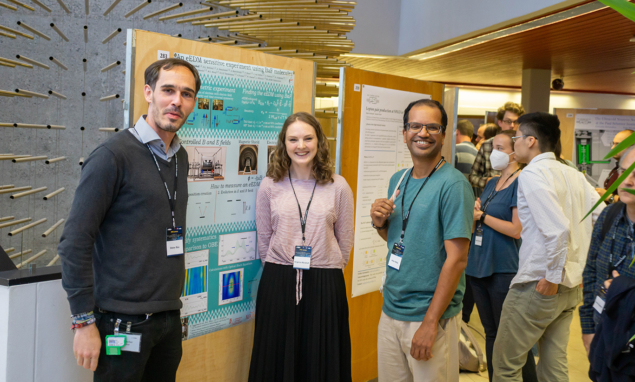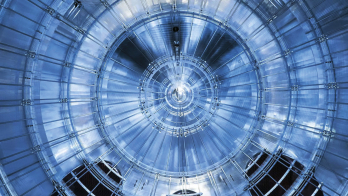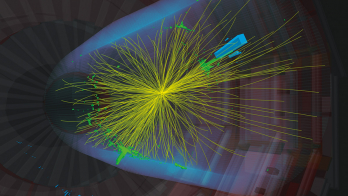
The triennial workshop “Physics of fundamental Symmetries and Interactions – PSI2022” took place for the sixth time at the Paul Scherrer Institut (PSI) in Switzerland from 17 to 22 October, bringing the worldwide fundamental symmetries community together. More than 190 participants including some 70 young scientists welcomed the close communication of an in-person meeting built around 35 invited and 25 contributed talks.
A central goal of the meeting series is to deepen relations between disciplines and scientists. This year, exceptionally, participants connected with the FIPs workshop at CERN on the second day of the conference, due to the common topics discussed.
With PSI’s leading high-intensity muon and pion beams, many topics in muon physics and lepton-flavour violation were highlighted. These covered rare muon decays (μ → e + γ, μ → 3e) and muon conversion (μ → e), muonic atoms and proton structure, and muon capture. Presentations covered complementary experimental efforts at J-PARC, Fermilab and PSI. The status of the muon g-2 measurement was reviewed from an experimental and theoretical perspective, where lattice-QCD calculations from 2021 and 2022 have intensified discussions around the tension with Standard Model expectations.
Fundamental physics using cold and ultracold neutrons was a second cornerstone of the programme. Searches for a neutron electric dipole moment (EDM) were discussed in contributions by collaborations from TRIUMF, LANL, SNS, ILL and PSI, complemented by presentations on searches for EDMs in atomic and molecular systems. Along with new results from neutron-beta-decay measurements, the puzzle of the neutron lifetime keeps the community busy, with improving “bottle” and “beam” measurements presently differing by more than 5 standard deviations. Several talks highlighted possible explanations via neutron oscillations into sterile or mirror states.
The current status of direct neutrino-mass measurements and future outlook down into the meV range was covered together with updates on searches for neutrinoless double-beta decay. An overview of the hunt for the unknown at the dark-matter frontier was presented together with new limits and plans from various searches. Ultraprecise atomic clocks were discussed allowing checks of general relativity and the Standard Model, and for searches beyond established theories. The final session covered the latest results from antiproton and antihydrogen experiments at CERN, demonstrating the outstanding precision achieved in CPT tests with these probes. The workshop was a great success and participants look forward to reconvening at PSI2025.







